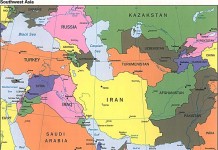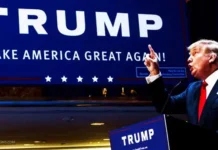Context
 President Obama delivered an overarching speech at the 68th session of the UN General Assembly session on September 24. The focus of the speech and the session at large remained on Iran and Syria, as was expected. However, Obama also laid out the broad contours for the future of American policy in the Middle East and North Africa. He had been criticized earlier for not doing so. Ironically, his UN speech sounded more like the State of the Union address, with one segment focused on addressing the war weary American audiences, and the other part on the on international concerns regarding American unilateralism and exceptionalism.
President Obama delivered an overarching speech at the 68th session of the UN General Assembly session on September 24. The focus of the speech and the session at large remained on Iran and Syria, as was expected. However, Obama also laid out the broad contours for the future of American policy in the Middle East and North Africa. He had been criticized earlier for not doing so. Ironically, his UN speech sounded more like the State of the Union address, with one segment focused on addressing the war weary American audiences, and the other part on the on international concerns regarding American unilateralism and exceptionalism.
The speech hinted towards the emerging American posture, including areas where the US and Pakistan have disagreements. One of them is obviously the interrelated factor of drone attacks and state sovereignty, the other element being how to deal with the non-state actors and the role of International law and UN.
American Interests in Middle East
Countering Putin’s article in the New York Times on September 11, Obama stated America is indeed exceptional, and it will act when there are justifiable moral and greater reasons to do so.
“But I believe America is exceptional. In part because we have shown a willingness through the sacrifice of blood and treasure to stand up not only for our own narrow self interest, but for the interest of all.”
Analysis
Putin had written in his piece:
“It is extremely dangerous to encourage people to see themselves as exceptional, whatever the motivation. There are big countries and small countries, rich and poor, those with long democratic traditions and those still finding their way to democracy. Their policies differ, too. We are all different, but when we ask for the Lord’s blessings, we must not forget that God created us equal.”
Obama went on to spell out the core American interests at stake in the Middle East: the free flow of energy; focus on dismantling the terrorist networks; building the capacity of its partners to fight the extremists; and preventing the development and use of weapons of mass destruction.
For this purpose, Obama stated: “The United States of America is prepared to use all elements of our power, including military force, to secure these core interests in the region,” he asserted.
Emerging Threats and Growing Concerns
Obama cited the Church massacre in Peshawar and the recent attack carried out by Al Shabab in Kenya, to demonstrate how Al Qaeda core has diminished but many splinter affiliates have emerged which continue to pose a threat to the US and its allies. He added how drone has proved to be the best weapon against terrorists that are exploiting state sovereignty. “But sovereignty cannot be a shield for tyrants to commit wanton murder, or an excuse for the international community to turn a blind eye to slaughter,” Obama stated.
At the same time, he clarified how US has addressed the international concerns regarding the widespread used of drones: “we have limited the use of drones so they target only those who pose a continuing, imminent threat to the United States where capture is not feasible, and there is a near certainty of no civilian casualties.”
It is this point that has persisted against the argument Pakistan has presented, claiming the strikes to be against International law. This difference will likely remain a sticking point now that Pakistan is contemplating on negotiating with TTP.
Why, What, and Who to Negotiate to
With who to negotiate, why, and what, has remained a convoluted dilemma, along with the appropriateness of when to use and cease applying force. Pakistan has quoted the example of US negotiating with the Afghan Taliban as an example of why it should talk with TTP. Another reason most cited is that force alone cannot work and ultimately talks will be required. However, others have made the case that Afghan Taliban and TTP are not comparable; the former is fighting against foreign occupation while in Pakistan there is no such cause.
On the other hand, TTP has over the years presented a number of reasons for why it carries out attacks. One of them being they did not want Pakistan to support and supply NATO forces in Afghanistan. The second, they have wanted to impose an Islamic system in Pakistan. Thirdly, they are reacting to the drone strikes targeting them; since Pakistan does not obstruct the drone attacks, it believes the state is complicit.
The formula US has evolved on which extremist groups to negotiate with depend on its affiliation with AQ. If a group starts to distance itself from AQ, US has been more opt to negotiating. The Afghan Taliban has shown this attitude in their recent statements. Nevertheless, the talking appears to be at a preliminary stage and much still remains to be seen on how the negotiated solution evolves. The dramatic US-Iran thaw is now a new factor, and how it would impact Afghanistan reconciliation will also be closely watched.
In case of TTP and other jihadist groups operating in Pakistan, they are widely believed to have ties with AQ. The example of LeT linked Mumbai attack and TTP connected suicide bombing at the US base in Khost in 2009, is a case in point. So talking to TTP is not as simple as assumed and carries international repercussions.
These concerns were apparent when Monmohan Singh met President Obama, and when he stated that Pakistan is still the epicenter of terrorism. While Pakistan seems to have delinked TTP from India oriented jihadist groups, Afghan Taliban, and AQ, others do not perceive this to be the case. Moreover, TTP is on the roll and has made no renouncements of the sorts Afghan Taliban are at least gesturing.
The success of negotiating is also far from ensured at this point. One of the reasons for this is that the extremist groups in the AfPak context, and Syria, may indeed have the upper hand. And in the absence of a clear winner, talks become even more complex.
Judging from Obama’s speech, to deal with the challenges of the future, the role of allies like Pakistan, and perhaps Iran, including Saudi Arabia, will be key to reigning in different brands of extremists. Meanwhile, US will withdraw to the background, while upgrading the capabilities of its partners to take on the charge against the irreconcilables. In his speech, Obama challenged the UN on how it would rise to the occasion and deal with the emerging threats it was not designed to deal with; emanating from with in states and where the state is too ‘fragile or failing’ to deal with them. It appears Pakistan’s war on terror, and that of the US, is far from over.



